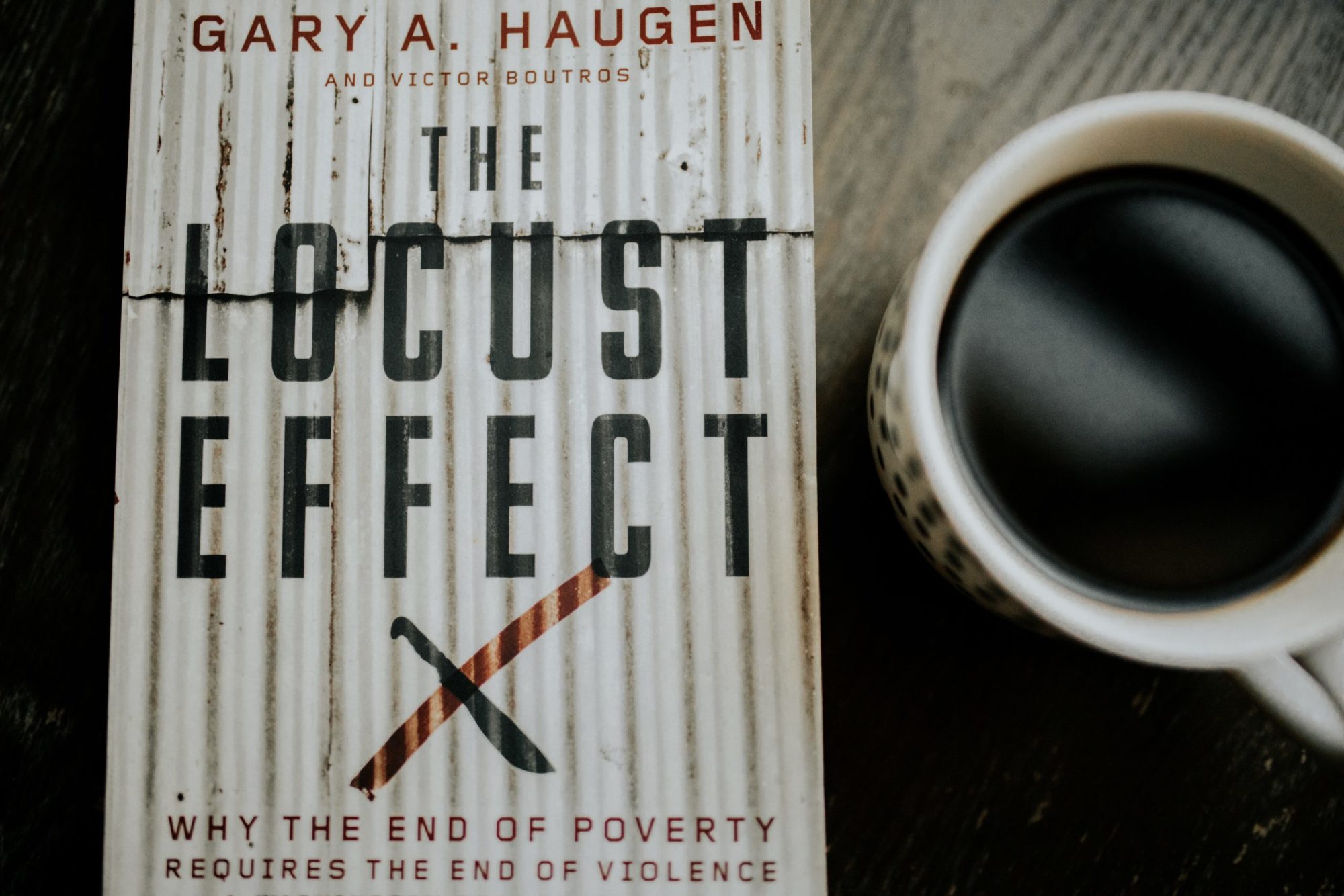I first read The Locust Effect about two and a half years ago, during the summer between my freshman and sophomore years of college, and I was inspired by the book’s argument for the importance of justice in the fight against global poverty. Since then, I’ve grown in many ways as a student and a person. Because of that, I took a lot more away from The Locust Effect when I recently re-read it.
Written by Gary Haugen, CEO and founder of International Justice Mission (IJM), and Victor Boutros, CEO of The Human Trafficking Institute, The Locust Effect argues that justice for the poor is a critical and necessary component in the fight to eradicate poverty. The book is based on IJM’s work to reform justice systems in countries like Peru and India.
Below are the five main things that I learned from The Locust Effect.
The rule of law is essential to eliminating poverty
When I first read The Locust Effect, this idea blew my mind. It’s a simple but important concept– living under the threat of violence prevents the poor from getting out of poverty. Without basic protections of law enforcement and the knowledge that justice is accessible, our best efforts to alleviate poverty through methods like education and health are futile. The importance of the rule of law for poverty alleviation is also articulated in Poverty, Inc.
The Locust Effect: the plague of violence on the poor
The book’s name comes from the idea that the best laid plans for economic development and poverty alleviation are fruitless without protection from crime and violence. Just as a swarm of locusts can completely decimate a carefully plowed and planted field, the locusts of violence can negate and undermine poverty reduction efforts. Often, this violence takes the form of human trafficking, sexual violence, land theft, and crime in developing countries.
Colonial legacies persist in the law enforcement systems of the developing world
The seventh chapter of the book describes how legacies of colonial regimes continue to affect poor people in the developing world. Although colonial powers have formally left countries like India and Kenya, they left behind systems of law enforcement that are designed to protect those in power. As a result, colonial legacies of inequality continue to disadvantage the poor in developing countries.
The privatization of security demonstrates the brokenness of public justice systems in the developing world
In countries like Brazil and India, where public justice systems are often broken and ineffective, wealthy elites can buy safety through private security services. This creates a parallel system of security that protects those with economic and political power, but leaves the poor susceptible to violence without a public justice system to provide options for legal recourse.
Reform and justice are possible
Cities like New York, Tokyo and Paris, which experienced dysfunction and corruption in their criminal justice systems during the past century and a half, have reformed their police systems to be reasonably professional and accountable. Haugen points out that in the context of history, dysfunction is normal within criminal justice systems. But as police forces in the United States, Japan and France have shown, reform is possible with local leadership and ownership to transform the justice system. IJM is working to bring justice system reform to the developing world.
IJM’s mission is close to my heart– I volunteered in the IJM Guatemala City field office during the summer of 2019 and will return in September 2020 as a field office intern. I’m excited to learn more about justice and IJM’s work in Guatemala and to share what I learn through Novel Hand.
These are just a few of the things that I learned from reading The Locust Effect. If you want to learn more about IJM and the principles discussed in The Locust Effect, I recommend reading the book and watching Gary Haugen’s TED Talk.

- College Football, Ariana Grande, and Water - September 3, 2023
- Livestock and Land Use: How Are We Feeding The Planet? Impactfull April 2022 - April 19, 2022
- What Does Voluntourism Look Like? A Case Study in a Cambodian Orphanage - March 28, 2022

Pingback: Shine a Light on Slavery Day - Novel Hand